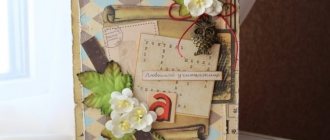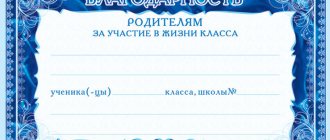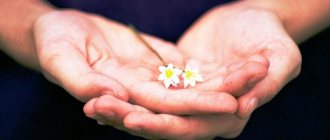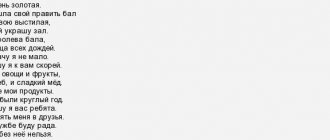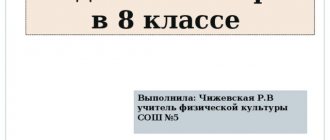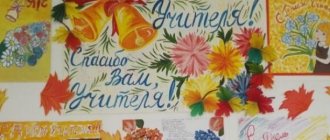Quiz “What, Where, When?”
• A story has survived to this day about how an English sailor sent his mother a gift that was valuable at that time - an overseas drink. The mother invited the guests to a delicious meal. She boiled the entire product in a bowl, drained off the brown, bitter water that was unnecessary, in her opinion, divided the grounds into portions and, seasoning them with sour cream, served them to the table.
This drink has been known since ancient times. They first started drinking it in China. Later it became a popular drink in many countries, but at first it could not be grown and prepared everywhere.
What drink are we talking about? (About tea.)
• It is known that stars are different: old and young, large and small, cold and hot. And the color of the stars is also different. It depends on the temperature of the star. If a star is very hot, then its color is white or slightly bluish. If the star is cooler, like our Sun, then its color is yellow or orange. And there are even cold stars. What color are they? (Red)
• Nowadays, cars mostly run on gasoline. But the very first car in history was not fueled with gasoline! This car drove slowly and carried only one passenger at a time. The driver was called a “chauffeur,” which translated means “stoker” or “stoker.” What did the first car in history work on? (On wood.)
• At all times, children loved to play. For example, our grandmothers played hide and seek just like us, and our grandfathers played “grandmothers” (a game with dice), and also football, but not with a rubber, bouncing ball, but with a heavy rag one. Our ancestors also played with “zhivuli”. What did they not make “zhivulya” from? From clay, from long potatoes, from painted wood chips wrapped in candy paper, from a folded rag. What do they call “zhivulya” nowadays? (Doll)
• This animal cannot run like other quadrupeds. It hops in large leaps on two long hind legs, and short front legs are pressed to the chest. A large tail helps him maintain balance while jumping, so that when he lands, he doesn’t fall or bump his nose. When the animal sits down to rest or eat, the tail is at work again - the animal leans on it. And if wild dingoes attack, he will be able to kick them so badly that they will suffer. He will lean on his tail and kick with his back leg.
Who does this wonderful tail belong to? (Kangaroo)
• There is a legend about how a nymph lived in the forest. She was very talkative. The gods did not like this, and as punishment they deprived her of the gift of speech. But not completely, but in such a way that the nymph could only repeat the endings of strangers’ words overheard in the forest.
• It so happened that the nymph met a very handsome young man. From her love for him, she began to lose weight and eventually turned invisible. Since then, the invisible nymph, wanting to remind the world of herself, repeats in the forest the words of others she overheard. Name this nymph. (Echo)
Blitz (You have 20 seconds to think about each question.)
• Cruel entertainment for people in which animals die. (Hunting)
• Rapid advance of troops. (Attack)
• A worker who is always painting something. (Painter)
• This Russian folk holiday is celebrated on June 24th. In the old days, during the holiday they sang, danced, danced in circles, and put flower wreaths on their heads. The main event of the holiday is the night search for fern flowers. It was believed that whoever found it would be rich and happy. This holiday also opened the swimming season.
Remember the name of the holiday. (Ivan Kupala holiday)
Black box . (Guess what is in the black box.)
• They hit Yermilka on the back of the head.
He doesn't cry, he just hides his leg. (Nail )
• Until this vehicle had an inflated tire, people had to suffer a lot, for which they called it the bone shaker. Another name for this vehicle is a spider, since in front it had a huge metal wheel with many thin shiny spokes, which very much resembled a spider’s web.
What is its name now? (Bike)
Super blitz . (One player remains. He is given 10 seconds to think about each question.)
• The country's armed forces. (Army)
• A small piece of fire flying into the air. (Spark)
• The back of the boat. (Stern)
• “Kaput” - that’s what the ancient Romans called this vegetable. They spoke Latin and lived on the shores of the Mediterranean Sea, from where it came to us, to Russia. "Kaput" means "head". The vegetable actually resembles a head. He fell in love with the inhabitants of the Russian land. When planting it in their gardens, the peasants said: “Don’t be long-legged, be big-bellied; don't be empty - be thick; don't be old - be young; don’t be small, be big.”
Name this vegetable. (Cabbage)
School tournament of the game “What? Where? When”
School tournament of intellectual game “What? Where? When?" for grades 8-9
Goals of the game: expand students’ knowledge, develop cognitive interest, intelligence, educate; form friendly relationships, ability to work as a team;
Necessary equipment for classes: computer, answer cards, stopwatch;
Age category of students: 8-9 grades.
PROGRESS OF THE GAME
The host opens the game with a greeting.
Ved : Hello, guys, we are glad to welcome you to our game. On the most intellectual popular game in the world - “What? Where? When?
I have six servants, agile and daring. And everything that I see around, I know everything from them. At my sign they appear in need. Their names are: HOW? And why? Who? What? When? And where?
R. Kipling
– I invite the players to take their places.
(The presenter introduces the players, who take their places at the table one by one.)
Rules of the game.
- The game consists of 2 rounds. Each round has 15 questions.
- Two teams of 4 people each take part. Each team chooses a captain.
- Each round, players are asked a question.
-
30 seconds to think about it After thinking (30 seconds), the captain names the player who will give the answer. - If a team answers immediately, then one minute remains in reserve, and the team can take it additionally in any round.
- If a team gives the correct answer, it gets one point. If the question is answered incorrectly, spectators may participate in the game.
- There is a musical break twice during the game. It occurs either by the announcement of the presenter (he has the right to do this twice during the game), or at the request of the team (it is allowed to do this once).
Question 1 :
In a children's poem by the poet Igor Zhukov, the same epithet is applied to a pen, to the sky because of the object in the sky, and to a small building because of the name of the occupant of this building.
Say this name. Answer:
Ball.
Question 2:
Listen to the beginning of the fairy tale:
“October... Autumn...
One day in the fall, a sad and offended Donkey found himself near the lake. “Alone, alone again,” he groaned, “loneliness, loneliness again...”
Coming up with such fairy tales is not as easy as it seems at first glance, because they have one interesting feature. Which?
Answer:
all words start with the same letter.
Question 3: Back in 1826, enterprising Americans used biological methods to clear garbage from the streets of Philadelphia. Who helped them with this?
Answer: pigs.
Question
4 : A cow and a chair, a chicken and a compass, a tripod and a piano.
What do every couple have in common? Answer: number of legs.
Question
5 : Humans are more than 75% water.
Blood consists of 90% water. What is the driest thing in the human body? Answer: tooth enamel
Question 8: In one American city, local librarians organized an unusual exhibition. Among the various pieces of paper, visitors could see slices of lard, kitchen knives, surgical gloves and razor blades. What did the exhibits serve in their time?
Answer: bookmarks.
Question 9: The Chinese sage Xu Zeshu wrote that this can be done when you are idle, when you listen to boring poetry, when the music stops, when you live in solitude, when you talk late at night, when you host a learned husband or well-mannered singers, in good weather. , on a hot day, at dusk. All of you probably do this, and most of you regularly. What is needed for this?
Answer: Tea and cups. This is a tea party.
Question 10: After long studies of the brains of various animals, scientists have come to the conclusion that monkeys are not our closest brothers in intelligence: they occupy only third place. After whom?
Answer: After dolphins and elephants.
Question 11: What was the name of the famous emperor and commander of France, who lived in 1769-1821? if it is known that he was born in Corsica; loved geometry, solved problems yourself?
Answer: Napoleon.
Question 12: To protect which part of the body from external damage did the Greeks use what they made from sandalwood bark?
Answer: Legs.
Question 13:
What number ends in the product of all natural numbers from 7 to 81? Answer: 0.
Question 14 : In honor of the fourth anniversary of the Victory, a monument to motorist warriors was erected in Kiev. A tireless war worker with the symbolic number VO 14-18 is immortalized on a high pedestal. What do the letters and numbers of the number mean?
Answer: The Great Patriotic War lasted 1418 days and nights.
Question 15: Who is the author of the words: “God forbid you see a Russian revolt, cruel and merciless”? Answer : A.S. Pushkin. "Captain's daughter" .
Question 16. What is common between S. Holmes and I. Stalin Answer: (Pipe)
Question 17:
In what year did Russia adopt Christianity? Answer: ( 988).
Question 18:
Which human organs are listed in the motto of a ruthless, vindictive avenger? (An eye and a tooth: an eye for an eye, a tooth for a tooth.)
Question 19:
The Encyclopedia of Slavic Mythology says that this creature is “a sender of nightmares, and all its power is concentrated in its eyes.”
This hero appears in Gogol's work of the same name. Who is this? Answer: (Viy)
Question 20:
An African proverb says: “The son of a leopard is also a leopard.”
What does our synonym proverb say? Answer: (The apple doesn’t fall far from the tree.)
Question 21:
Which Russian princess first became the French queen? Answer .
Anna, daughter of Yaroslav the Wise. Question 22:
Why do the Red, White and Yellow Seas have colored names?
Answer . In the Red Sea, the water is red - the result of a bloom of microscopic blue-green algae. The White Sea owes its name to the ice with which it is covered for more than two hundred days a year. Yellow Sea – yellow gives color
silt that is carried away by rivers.
Question 23:
What is the name of the Egyptian about whom Hegel said: “He is a symbol of symbolism.”
Answer . Sphinx.
Question 24:
In a work well known to you, the birth of the main character, her development, her color and becoming are described. This work also mentions two seasons, two representatives of the fauna - a rodent and a predator, an elderly man and children. I hope all of the above is enough to name the main character of this work. Attention question: Name her. Time! Answer: Christmas tree. Comments: Based on the plot of the song “A Christmas Tree Was Born in the Forest.”
Question 25:
At what age does legal capacity begin?
(from birth) Question 26:
At what age does full legal capacity begin?
(from 18 years old) Question 27 : Name the levels of education, at least three. (Preschool, primary, general basic, complete secondary, secondary vocational, higher vocational)
Question 28 :
Name the religions known to you, at least three.
(Christianity, Buddhism, Islam, Orthodoxy, Catholicism, Protestantism, etc.) Question
29 : The purposeful process of education and training in the interests of the individual, society, and state is ... (education).
Question 30 : It is accepted without proof, but bears a feminine name.
What is it and who is she? Answer: the statement is an axiom.
The black box contains an instrument that, according to the 1st century Roman poet Ovid, was invented in Ancient Greece. What's in the black box? Answer: compass
Everyone knows the expression “Velvet Season”.
Where did it come from? Answer: Rich people wore velvet suits during the summer season, which began in the spring, “velvet” - soft, warm.”
Today, the velvet season is September and (partly) October in the south. The music is on
The team that gives the most correct answers wins.
Team names
Team
" Brainheads "
Team
" Einstein and everyone...everyone......everyone...... "
